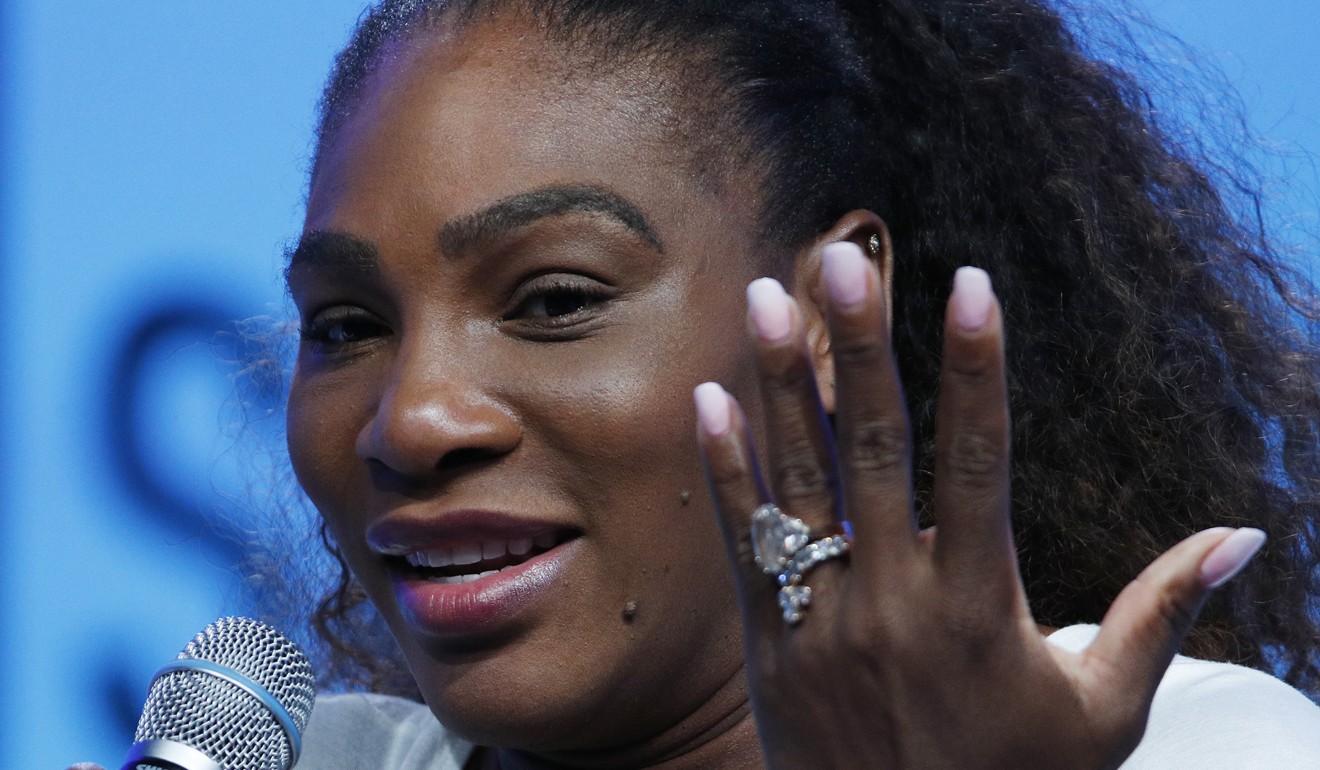
Serena Williams’ outburst at the US Open final was a misguided way to tackle sexism in tennis
Luisa Tam says if Williams truly believes sexism is prevalent in tennis and wants to fight for equality, she should have chosen a better moment
I am going to ignore political correctness and say it unequivocally: Serena Williams’ outburst at the recent US Open women’s singles final was utterly misguided.
Fighting sexism is a worthy cause, but the way Williams raised the issue created no meaningful impact because it was fought in the wrong court at the wrong time.

The dispute began when chair umpire Carlos Ramos gave Williams a warning because her coach was seen giving her instructions courtside. Williams protested, and in her anger she broke her racket, which led Ramos to deduct her a game point.
Serena Williams lands US$17,000 fine for US Open final outbursts
Williams is a world-class player. She undoubtedly knows well the prevalence of sexism in her sport and has argued she was unfairly punished and that male players had evaded penalty for worse.
Although she raised a fair point, Williams could have chosen a far more appropriate moment to campaign against such gender bias in the sport. Did she only bring it up when she realised she had been victimised?
Williams could have chosen a far more appropriate moment to campaign against such gender bias in the sport
While many saw the merits of her disagreement with Ramos, others have pegged Williams a “sore loser”. There are also those who agree with the unjust hand she was dealt, but believe she could have acted with more grace and decorum on the court.
However, it seems baseless that the media have dubbed Williams’ tirade against Ramos a “tantrum”. Such language perpetuates sexist attitudes, as do words like “hysterical” – another word frequently attributed to Williams and other women who stand up to sexism.
The word “hysterical” and its root “hysteria” originate from the Greek “hystera”, meaning “womb”. Hysteria was an 18th century term used to describe a mental disorder caused by an affliction of the uterus; an illness exclusive to females.
Although hysteria is no longer recognised as a medical condition, the word and its counterparts are still used to describe extreme outbursts of emotion and excitement. And a number of media outlets pegged Williams’ outburst as “hysterical”.
Serena Williams’ US Open treatment divides the tennis world
How can we defy sexist attitudes if even the English language continues to uphold such outdated usage? Although these writers may not have been aware of the significance of such a term, they – and the rest of the English-speaking world – must be made aware of this if we are to evolve into a truly equal and tolerant society.
Anyone who stands idly by to allow people to do unjust and bad things to others is an accomplice. Even when we stand alone, we must have the courage to act and show we don’t accept sexism.
Like Williams, many people in positions of power and privilege don’t realise how important it is to preserve equality and prevent injustice until they are disadvantaged.
When injustice, biases, and gross inequality persist in the world, all of us suffer because there is no guarantee that we will not be victims one day.
The firestorm Williams created at the US Open demonstrated the passion she has for the sport, and was a release of all her pent-up anger against inequality in tennis.
She can still use that powerhouse status to work to eliminate unequal treatment between men and women in sport or even shine the spotlight beyond the tennis court.

It’s hard to believe that even at that level of sport can there be such a blatant disregard of equality, allowing men and women to be treated differently and in such an overt manner.
Some said it was understandable for Williams to react the way she did because she was merely fighting for herself and was punished accordingly for her misconduct. In retrospect, perhaps she wouldn’t have been so “hysterical” if male players in the past had been treated in an equally strict manner.
There is a famous saying that aptly sums up Williams’ dilemma: “Silence in the face of injustice is complicity with the oppressor.” Let us not stand idly by and let sexism reign in our society. Indifference makes someone just as complicit as those who commit such wrongful acts.
Luisa Tam is a senior editor at the Post


